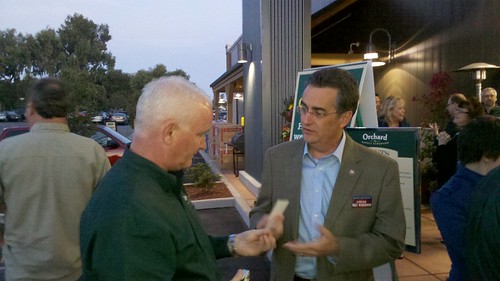Before she became self-conscious about her singing voice, my mother sang to baby-me at bedtime, after the book chapter was read, In the long run, it was the reading that had the most obvious influence on me as I grew up, and grew older, and grew old. I am a life-long reader as well as a listener to audio books, and could not live without other people's stories and voices. Her singing to me, which stopped when I was about six years old, did not predispose me to a life dedicated to music. In fact, I have a sneaky feeling that her tone-deaf renditions permanently warped my pitch.
But recently I encountered in the depths of my memory a couple of songs that I know without a doubt she sang to me. Not "Baa, Baa Black Sheep" (although it was wondering where the tune I remember for that song came from, once I realized it was suspiciously just like the tune for "Twinkle, Twinkle Little Star") nor "Old Macgregor" nor "One Two Buckle My Shoe" - although she may well have sung them to me.
The songs I dragged up from a sense-memory more than 60 years old were: "My Father Was the Keeper of the Eddystone Light" and "Abdul Abulbul Amir." You must pause here to listen to these two unlikely lullabies, courtesy of YouTube.... Just click the links and walk with me down memory lane. Ignore the masculine renditions. This was my wavering-pitch mom - beautiful, alcoholic, not very reliable, wicked smart and funny as hell.
Probably these songs don't remind you of your toddler years. And no wonder - "slept with a mermaid one fine night"? I couldn't have been more than a baby when I first heard those words, and it didn't occur to me until I was well into my teens that I had never wondered what that meant. And once I thought about it, I was appalled - shocked, shocked! - as only a teen-age girl can be.
Ah well. And where did my mother get these songs? My guess is that during her young adulthood, before and during WWII, she ran with a bohemian, Dorothy Parker-ish crowd where 18th century sea chanteys were trotted out when the gin and bourbon flowed. And when you think of it, there could have been much worse drinking songs for her to bring into my little nursery! ("Roll Me Over in the Clover" anyone?)
I turned to YouTube to resurrect the lyrics and melodies of these songs.Immediately, I knew exactly which variant of the words she had used, and I was struck by how witty the songs are. They are piquant. They are risque. They aren't French, but they could be, given the adjectives I've chosen.... They are also pretty straightforward to perform: da DUM tee dee DUM tee dee DUM tee dee DUM. No strange intervals. Nice repetitive melodies. French songs of the time would have required a Piaf, and that was way beyond her.
So I look at this little horde of sung words that she left me, just part of the very meagre store of good things that she bequeathed me, and I salute her.
Helen Eulalah Sennette Handler: good songs, wry humor -- thanks
Handler's Blog
Search This Blog
Tuesday, January 21, 2014
Saturday, September 17, 2011
Saturday, August 6, 2011
Sunday, January 23, 2011
A salute to “Sarge”
When Sargent Shriver moved from inventing and building the Peace Corps to heading up President Lyndon Johnson’s War on Poverty, the poverty rate in the US was 19%. In 12 years, between 1966 and 1974, poverty had dropped to 11% -- almost to half the previous rate. Oh, and today it’s 30%.
It’s hard to grasp both the speed of the changes that Shriver helped create, and the fact that we lost the “War on Poverty” after that kind of amazing success.
Shriver was buried yesterdayy, and I was in tears as I listened to the Fresh Air interview on NPR. My first job out of college was with the Office of Economic Opportunity, the agency Shriver established to implement programs such as HeadStart, Community Health Centers, Job Corps and VISTA.
There could not have been a better place for a freshly graduated, directionless and idealistic person to work. The OEO folks were serious, learned, overworked, thrilled, funny, dedicated, eclectic and all on fire with the mission to get this thing done: re-think all the things that keep poor people poor, find ways to inspire change and move on to the next impossible thing.
It threatened the heck out of lots of the guardians of the status quo. But it worked.
I was privileged and honored to have been a part of the programs Sargent Shriver built. I hope that his passing, and the reminder of what he achieved, can re-ignite that spark of idealism and belief in positive change. Thanks, Sarge!
It’s hard to grasp both the speed of the changes that Shriver helped create, and the fact that we lost the “War on Poverty” after that kind of amazing success.
Shriver was buried yesterdayy, and I was in tears as I listened to the Fresh Air interview on NPR. My first job out of college was with the Office of Economic Opportunity, the agency Shriver established to implement programs such as HeadStart, Community Health Centers, Job Corps and VISTA.
There could not have been a better place for a freshly graduated, directionless and idealistic person to work. The OEO folks were serious, learned, overworked, thrilled, funny, dedicated, eclectic and all on fire with the mission to get this thing done: re-think all the things that keep poor people poor, find ways to inspire change and move on to the next impossible thing.
It threatened the heck out of lots of the guardians of the status quo. But it worked.
I was privileged and honored to have been a part of the programs Sargent Shriver built. I hope that his passing, and the reminder of what he achieved, can re-ignite that spark of idealism and belief in positive change. Thanks, Sarge!
Friday, January 14, 2011

At home in the kitchen, Friday night..
Build myself a little cocktail, start fixing dinner.
Need to make some fresh salad dressing, press some garlic, add olive oil, squeeze in some fresh lemon juice... hmm, pretty sour.
Ok, maybe some balsamic vinegar will smooth out the sharpness. There, a little dash -- CRAP! I put it in my Martini! So -- taste it?!
Ok, not too bad... Not for every day but... Martini Modena? Trend, anyone? Call the Singlebarrel guys!
Sunday, January 9, 2011
Dining with a feral fox in the frozen forest...

This is how I've been describing my current eating plan, started right after the first of the year. It's based on a book, Dr. Gundry's Diet Evolution, which I read over the eating extravaganza we fondly call "the holidays" -- although I was not willing to start the plan while pie and mashed potatoes were on offer.
For seven days, I've been using my feral fox image to help me follow the recommendations for the first two weeks of this process. Ms. F. Fox can raid hen-houses in the dead of winter, catch birds and bugs and grubs, can snack on nuts, seeds, bitter mosses and ferns, pine needles, and gag down some kale or cabbage that grows even in the cold. I can eat eggs, meat, fish, nuts, and any vegetable that is green. (Avacados and tomatoes are NOT vegetables.) No fruit, no starchy roots, no grains. No sugar, honey, molasses and no refined or processed foods.
Essentially, the premise of the book is that our Western culture has provided us with a food supply that our bodies interpret as "end of summer, fruit's on the vine, eat everything that tastes sweet and comforting, to build fat for the winter." This evolutionary programing was successful -- so it got nicely encoded in our 21st century genomes, where it is now busy killing us.
This first two weeks in the frozen forest is designed to reset the genes that signal to my body that I, munching sweet potato casserole and mince pies, am in fat-storing mode. A sensible preparation for a winter food shortage, this mode is driven by complex interactions of hormones including insulin, causing every bit of available blood sugar to be packed away as body fat. It's only intended to happen for a few months once a year, not every waking hour all year long.
In another week, I'll be able to start adding back some specific fruits and veggies. If I have done the first two weeks right, I should have lost about 5-8 lbs, according to the book. I'm already down 5 -- probably water weight, but woohoo anyway!
The second premise of the book is that our genes are also being urged to kill us off before we hog any more of the shared resources. I'll talk about that in the next post. It's scary!
Oh, and in honor of my foxy mascot, I'm a redhead again.
Friday, January 7, 2011
A habit of strenuous casualness

Ok, that's a really clumsy headline. I can't come up with a better short description of the language we use to describe some of the most casual and careless actions in our everyday life. Here are some examples:
-- throw on some jeans
-- run to the store
-- dash off an e-mail
-- dive into a project
-- toss in a load of laundry
-- throw dinner together
-- fall asleep
These are mundane activities, no sweat or strain required. And yet the verbs we use are more appropriate to Olympic competition. Any ideas on why we do that?
Subscribe to:
Posts (Atom)

